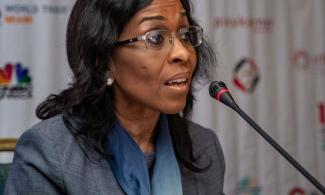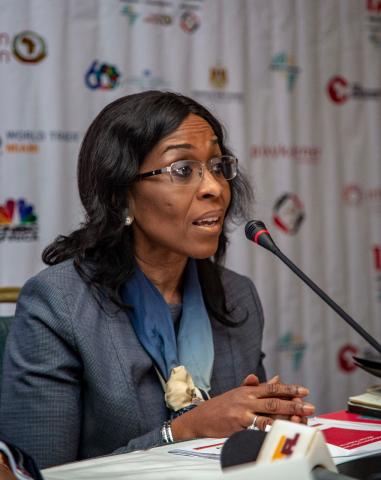
For the free trade area to become reality, she said ‘collaboration, including with governments regional development banks, the private sector, and relevant stakeholders on the continent and in the Diaspora,’ is of huge importance.

Kanayo Awani, Managing Director, Intra-African Trade Initiative, at the Africa Export-Import Bank (Afreximbank), has said improving market integration in Africa should be accompanied with increased industrial capacity.
Speaking at a summit in Chicago Illinois, USA, Awani said this would facilitate competitive trade in value-added goods in the continent and globally.
In a statement made available to SaharaReporters, Awani was reported to have delivered a keynote address at a business conference organised by Trade With Africa (TWA).
Awani said, “Afreximbank was already financing and facilitating the production of such value-added goods, using a number of instruments which also support intra-African trade. These included supporting the establishment of industrial parks and export processing zones, establishing testing inspection and certification services, also known as Africa quality assurance centres, and setting up export trading companies.”
Awani furthered informed attendees that the bank had recently launched the Pan-African Payments and Settlements System, established MANSA, an Africa customer due diligence repository platform, and instituted the Intra-African Trade Fair, which hold its second edition in Kigali from 1 to 7 September 2020, in order to further boost intra-African trade and support the implementation of the African Continental Free Trade Area (AfCFTA).
For the free trade area to become reality, she said ‘collaboration, including with governments regional development banks, the private sector, and relevant stakeholders on the continent and in the Diaspora,’ is of huge importance.
Awani reminded participants that the diaspora population from Africa of 32 million people, ‘there were opportunities for growth in Diaspora-focused trade in ethnic foods, textiles, the creative industry, including music, film, and tourism.’
The Afreximbank executive emphasized that the discussion among policymakers in Africa and the US should now evolve from discussions about foreign aid to negotiations about trade.
Convener of the conference, Toyin Umesiri, had a slightly different demand.
Umesiri wanted policymakers in the US and Africa to remove trade barriers in order to give the American market access to authentic African products, raw and manufactured items.
Albert Muchanga, Africa Union Commissioner for Trade and Industry, believes the AFCTA deal when implemented, will overhaul, ease and increase trade across the borders of Africa.
While optimism is high that the long path to implementing the Africa Continental Free Trade Agreement will be worth the journey, doubts still remain as to how strong competition will be or if the products that will dominate such a market will not be those from other continents.